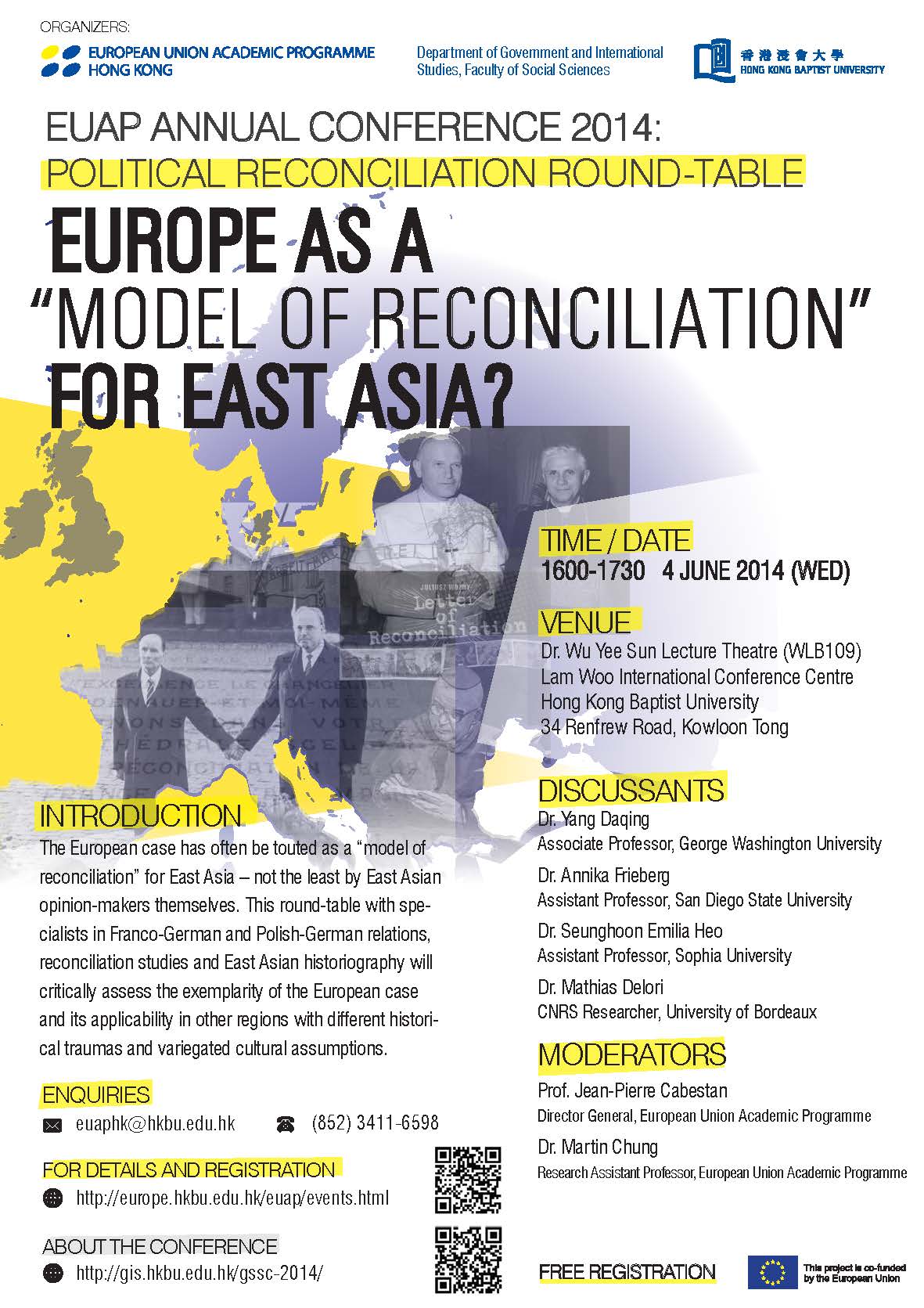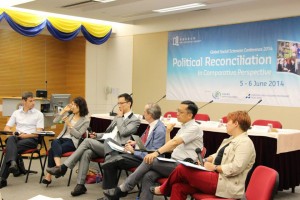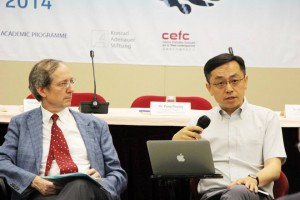Date/Time
Date(s): 04/06/2014
Time: 4:00 pm - 5:30 pm
Location
WLB109, Wing Lung Bank Building, Shaw Campus
Language: English
Admission: Free registration
EUAP Annual Conference 2014: Political Reconciliation Round-table ‘Europe as a “Model of Reconciliation” for East Asia?’
Discussants:
– Dr. Yang Daqing, Associate Professor, George Washington University
– Dr. Annika Frieberg, Assistant Professor, San Diego State University
– Dr. Seunghoon Emilia Heo, Assistant Professor, Sophia University
– Dr. Mathias Delori, CNRS Researcher, University of Bordeaux
Moderator:
– Prof. Jean-Pierre Cabestan, Director General, EUAP
– Dr. Martin Chung, Research Assistant Professor, EUAP
Jointly organized by the EUAP and the Department of Government and International Studies, HKBU
The round-table discussion “Europe as a ‘Model of Reconciliation’ for East Asia?” was organized jointly by the European Union Academic Programme Hong Kong and the Department of Government and International Studies of Hong Kong Baptist University, as a prelude to the Global Social Sciences Conference 2014: Political Reconciliation in Comparative Perspective.
Experts in reconciliation studies discussed how relations between nations are shaped by the historical legacy of atrocities and enmity. They also paid special attention to conditions and actors that guide reconciliatory processes.
Shared traumatic experience and persistent hostile mood towards each other in subsequent generations were suggested as common characteristics of countries where reconciliation is needed. Moreover, it has been stressed that such cases are usually based on a sense of historical injustice. The discussants emphasized the importance of the role of non-state actors taking political effort to push for normalization of relations and forgiveness. Comparisons were drawn between strong influence of the church representatives in fostering reconciliation in Europe and the potential of religious groups in Asia to strive for such changes. Furthermore, Franco-German student exchanges were put forward as an example of reconciliation on societal level and contrasted with similar initiatives in East Asia. It was argued that through such visits students can reflect on the ‘dark side’ of the history of their own country. Different approaches towards the historical past were examined, such as ‘forgiveness’, ‘amnesia’ or ‘remembrance’. The discussants pointed to the difficulty of resolving territorial disputes and issues regarding colonial dispossessions, where perfect justice remains elusive. They mentioned different models of reconciliation such us bottom-up or state-initiated process. Cultural differences were also included as an important dimension with regard to the way nations perceive the concept of reconciliation. Questions were raised whether one nation can really force the other to apologize for the past and if the act of apology is sufficient for reconciliation.
Finally, it was stressed that reconciliation is a flexible process that experiences ups and downs in its trajectories and is likely to be never fully completed. It was concluded that the European experience may not always serve as a perfect model, but it is certainly an example of historical achievements regarding reconciliation. It provides a toolbox of ideas and initiatives that can be inspiring for people seeking reconciliation around the world.
Visit our Facebook Album for more pictures:
ENQUIRIES
3411 6598
euaphk@hkbu.edu.hk




